As technology continues to advance, coupled with the pressing need for improved efficiency and the increasing cost of labor, the level of automation has become a critical factor in determining the success of enterprise operations. Businesses have come to recognize that streamlined, efficient, and error-free processes are essential for gaining a competitive edge in today’s highly dynamic market environment. This trend is further supported by data from the latest market report by LogisticsIQ, which indicates that the warehouse automation market is projected to reach USD 55 billion by 2030.
However, although a smart warehouse offers numerous advantages, it is important to assess whether your company truly requires such a facility. An intelligent warehouse is essentially a warehouse equipped with a "brain" and "automated limbs," meaning it utilizes robots (such as AGVs), intelligent software, smart equipment, and sensors to manage storage, sorting, transportation, and dispatching with minimal human intervention. Contrary to the common belief that only large enterprises require smart warehouses, there are actually six types of businesses that should consider investing in such a system.
1. E-Commerce & Retail Businesses with Fluctuating Orders
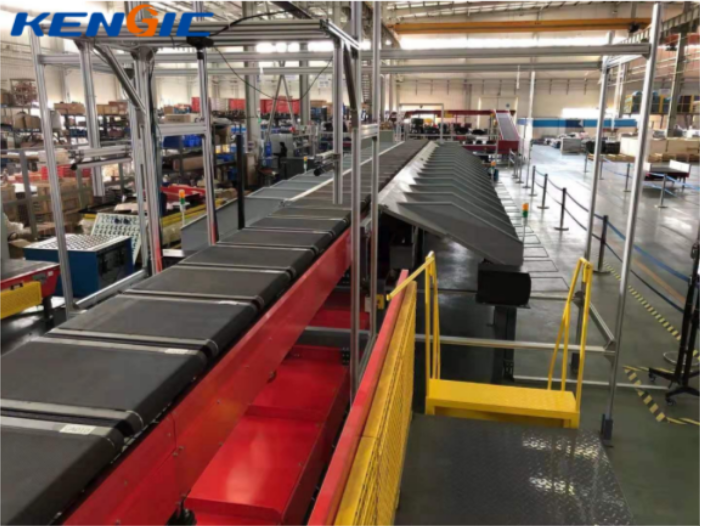 KENGIC’s Smart Sorting&Conveying Project in Turkey
KENGIC’s Smart Sorting&Conveying Project in Turkey
With the rapid global development of the e-commerce and retail industries, many companies face significant challenges, such as sudden surges in order volumes—particularly during promotional holidays like Black Friday and Singles' Day, where daily order counts can increase from 5,000 to over 20,000. These businesses must also manage a vast number of SKUs requiring efficient picking, as well as the pressure to fulfill shipments within 24 hours, similar to Amazon’s Prime delivery model. To address these challenges, implementing a well-equipped smart warehouse can significantly enhance sorting and picking efficiency, enabling the processing of thousands of orders daily and thereby reducing the rate of late shipments.
2. Food and pharmaceutical Companies With Strict Freshness and Safety Regulations
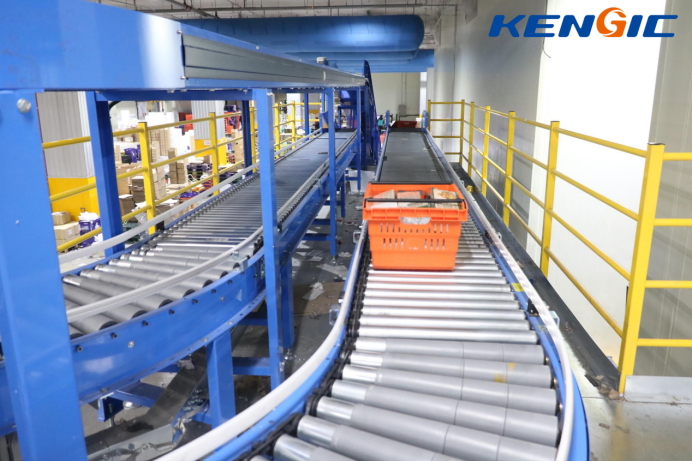
KENGIC’s Smart Sorting & Conveying Project for Fresh Product Industry in South Korea
Food and pharmaceutical products are temperature-sensitive and require storage in temperature-controlled smart warehouses. Furthermore, for safety reasons, it is crucial to ensure full traceability of food and medicines to prevent the distribution of expired or incorrect products. Therefore, smart warehouses can ensure the safety, freshness, and traceability of food and medicines while maintaining low error rates.
3. 3PL Providers Handling Multiple Clients
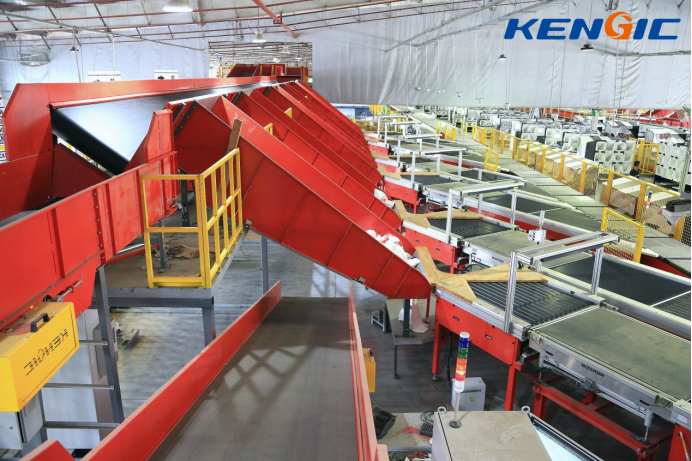
KENGIC’s Smart Sorting & Conveying Project for 3PL Industry in India
Third-party logistics (3PL) providers offer warehouse management services to multiple businesses and face a range of challenging issues. These include fluctuating client requirements—for instance, some clients may require bulk storage, while others prioritize fast small-package shipping; cross-border logistics complexities, such as varying customs regulations across countries and the need for local language labeling; and the pressure to reduce operational costs while managing the needs of dozens of clients simultaneously.
Under such conditions, 3PL providers can leverage smart warehouse systems equipped with flexible sorting modules to improve storage space utilization, effectively address conflicting client demands, and accelerate materials handling processes with minimal human intervention.
4. Manufacturers with Large/Heavy Goods
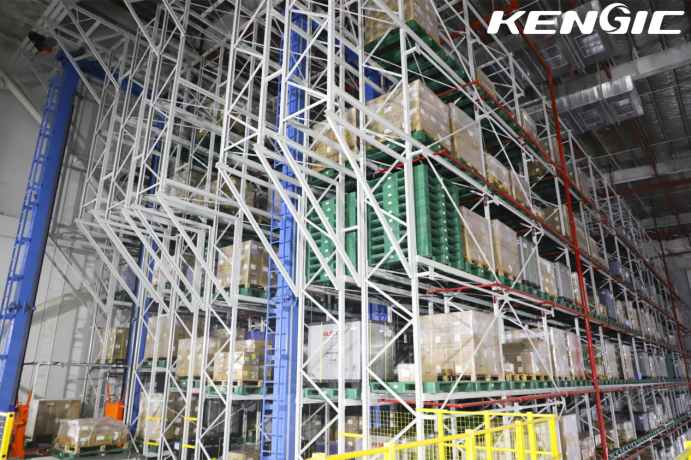
KENGIC’s Smart Storage Project for Auto Parts Industry in China
Some industries, such as the automotive, tires, machinery manufacturing, and home furniture industries, produce large and heavy goods. These industries not only require handling of bulky and heavy finished products, but also deal with raw materials that are often voluminous and available in large quantities. In general, companies in these sectors aim to integrate their production processes with storage and warehousing systems to monitor production flows effectively. Therefore, the implementation of smart warehouses equipped with AS/RS (Automated Storage and Retrieval Systems) can help companies maximize storage space, improve inventory accuracy to up to 99.99%, and ultimately enhance production efficiency while reducing labor costs.
5. Businesses Growing Fast in Emerging Markets
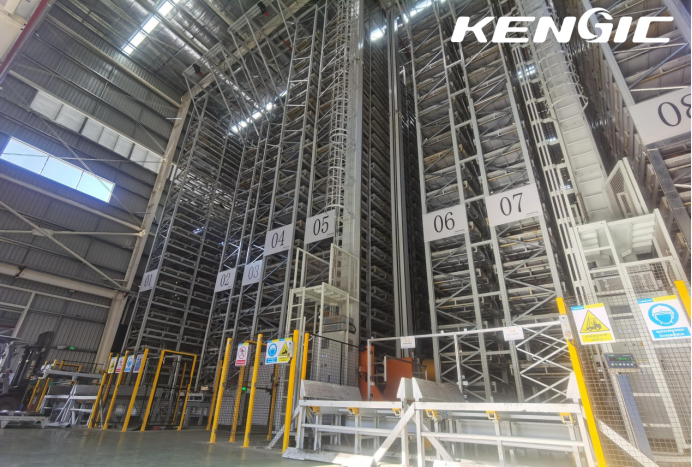
KENGIC’s Smart Storage Project for the Tire Industry in Cambodia
Many companies are now expanding their operations globally, which presents challenges such as a surge in order volumes, gaps in infrastructure, and the need for new market expansions.
In this context, smart warehousing solutions become crucial. They enable companies to scale their operations efficiently, address these challenges, and enhance their global business performance.
6. New Policies in Regional Markets
On July 17, the European Parliament approved a proposal requiring non-EU sellers to establish local warehouses in Europe in order to strengthen the regulation of cross-border e-commerce. To comply with these local regulations and better serve European customers, the implementation of smart warehousing solutions can serve as a valuable strategy.
Firstly, intelligent warehousing systems enable companies to store a greater volume of products within the same floor area, while also reducing operational costs through efficient order processing. This leads to cost savings and enhances market competitiveness.
Secondly, smart warehouses are equipped with advanced inventory management systems that provide real-time tracking and management of goods, significantly reducing errors and ensuring timely deliveries. This not only improves customer satisfaction but also supports the European Parliament’s focus on efficient and transparent supply chains. By adopting smart warehouse technologies, non-EU sellers can more effectively integrate into the European market, thereby building trust and fostering long-term customer loyalty.
How to Determine If Your Business Requires an Intelligent Warehouse: Three Quick Assessments
Are labor costs accounting for more than 30% of your warehouse expenses? Are order inaccuracies or delivery delays leading to customer dissatisfaction? Is your current storage capacity insufficient to support projected growth for next year? If you answered "yes" to any of these questions, it may be time to consider implementing an intelligent warehouse solution.
Key Takeaways
Intelligent warehouses are not simply about adopting advanced technology for its own sake—they are strategic tools designed to address specific operational challenges, such as reducing costs, minimizing errors, and supporting business expansion. Whether your business involves shipping cosmetics in Brazil or frozen seafood in Saudi Arabia, a well-designed system can be tailored to meet your unique requirements. If you'd like to explore whether this solution aligns with your operational needs, please contact us at [marketing@kengic.com]. We are happy to assist you in evaluating your options.
Stay tuned for our upcoming article, which will explore the essential equipment for a smart warehouse and provide guidance on assessing whether the investment aligns with your business objectives.
We will reply you within 24 hours